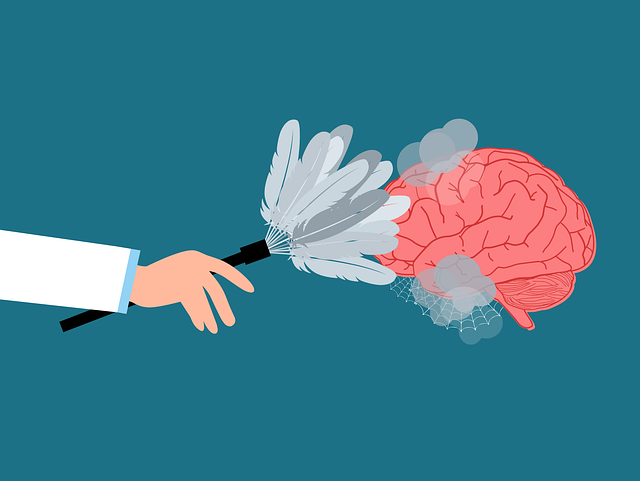Longmont Developmental Disability Therapy leverages positive thinking as a powerful tool for individuals with developmental disabilities. Through exercises rooted in reframing negative thoughts and cultivating optimistic self-talk, clients build emotional resilience, improve well-being, and develop effective coping strategies. This approach promotes cultural competency, strengthens therapist-client relationships, and empowers clients to manage challenges while aligning with the program's core services. Measuring success involves tracking improvements in emotional intelligence and mental health, while prioritizing therapist well-being is essential for sustained service quality.
Positive thinking exercises have emerged as a powerful tool in Longmont Developmental Disability Therapy, offering significant benefits to individuals with developmental disabilities. This article delves into the transformative power of cultivating optimism and its profound impact on overall well-being. We explore effective strategies for therapists to incorporate positive thinking activities into therapy sessions, providing practical guidance for daily practice. Additionally, we discuss measurement techniques and adjustments to ensure optimal outcomes in Longmont development disability therapy.
- Understanding Positive Thinking and Its Impact on Individuals with Developmental Disabilities
- Incorporating Positive Thinking Exercises into Therapy Sessions
- Practical Strategies for Daily Positive Thinking Practice
- Measuring Success and Adjusting the Implementation Process
Understanding Positive Thinking and Its Impact on Individuals with Developmental Disabilities

Positive thinking is a powerful tool that can significantly benefit individuals with developmental disabilities, as it empowers them to cultivate a more optimistic and resilient mindset. Longmont Developmental Disability Therapy emphasizes this approach, aiming to enhance overall well-being and quality of life. By encouraging positive self-talk and reframing negative thoughts, people with developmental disabilities can improve their emotional regulation and reduce the impact of challenges they may face. This practice is particularly valuable in navigating the unique pressures and complexities associated with these disabilities.
Integrating positive thinking into daily routines can foster a sense of empowerment and agency. It promotes self-care routine development for better mental health, which is crucial for managing symptoms of mental illness. Moreover, it contributes to stigma reduction efforts by challenging negative stereotypes and encouraging acceptance. Mental health professionals play a vital role in guiding individuals through this process, incorporating risk management planning to ensure their well-being while implementing positive thinking exercises.
Incorporating Positive Thinking Exercises into Therapy Sessions

Incorporating Positive Thinking Exercises into Therapy Sessions at Longmont Developmental Disability Therapy can significantly enhance the overall therapeutic experience and outcomes for individuals with developmental disabilities. These exercises, grounded in the powerful principles of mind over matter, offer a practical way to cultivate resilience, self-esteem, and coping mechanisms. By integrating such practices into therapy, healthcare providers facilitate clients’ ability to manage stress, improve emotional regulation, and develop a more positive self-perception—all essential components of Self-Care Routine Development for Better Mental Health.
The benefits extend further, as these exercises promote Healthcare Provider Cultural Competency Training by fostering an understanding of individual perspectives and beliefs. By recognizing the significance of mind over matter principles, therapists can create a supportive environment that respects diverse cultural backgrounds and encourages open communication. This inclusive approach not only strengthens the therapeutic bond but also ensures that each client receives personalized care tailored to their unique needs.
Practical Strategies for Daily Positive Thinking Practice

Incorporating daily positive thinking exercises is a powerful tool for anyone, but it’s especially beneficial for individuals with developmental disabilities in Longmont who seek to strengthen their inner resilience. One practical strategy is to start each day with a mindset reset. This can involve setting aside 10 minutes for reflection and gratitude; writing down three things you’re thankful for or recalling recent achievements fosters a positive outlook. Additionally, practicing mindfulness through meditation or deep breathing exercises helps individuals stay grounded and reduces stress throughout the day, enhancing their overall well-being.
The Community Outreach Program Implementation at Longmont Developmental Disability Therapy encourages clients to engage in activities that spark joy and fulfillment. Whether it’s participating in hobbies, spending time in nature, or connecting with supportive communities, these experiences contribute to coping skills development by providing alternative perspectives and reinforcing a sense of belonging. By integrating such practices into daily routines, individuals cultivate inner strength, making them better equipped to navigate challenges and embrace life’s opportunities.
Measuring Success and Adjusting the Implementation Process

Measuring success is a vital step in the implementation process of any positive thinking exercise, especially in Longmont Developmental Disability Therapy. By setting clear goals and metrics, therapists can assess the effectiveness of the program. This might include tracking improvements in clients’ emotional intelligence, empathy building strategies, or overall mental well-being. Regular evaluation allows for adjustments to be made, ensuring the intervention remains tailored to the unique needs of each individual.
For healthcare providers, burnout prevention strategies are crucial alongside these measurements. As they navigate the implementation process, it’s essential to foster self-care practices and create a supportive environment. This can enhance their emotional resilience and sustain their ability to deliver effective therapy over time, benefiting both provider and client alike.
Implementing positive thinking exercises in therapy sessions for individuals with developmental disabilities can significantly enhance their overall well-being. By incorporating practical strategies into daily routines, therapists in Longmont Developmental Disability Therapy can foster a sense of optimism and resilience. Measuring success involves tracking progress and adjusting the implementation process as needed, ensuring each individual receives tailored support to navigate their unique challenges. This holistic approach not only improves therapeutic outcomes but also empowers individuals to embrace a brighter perspective, ultimately enriching their lives.











